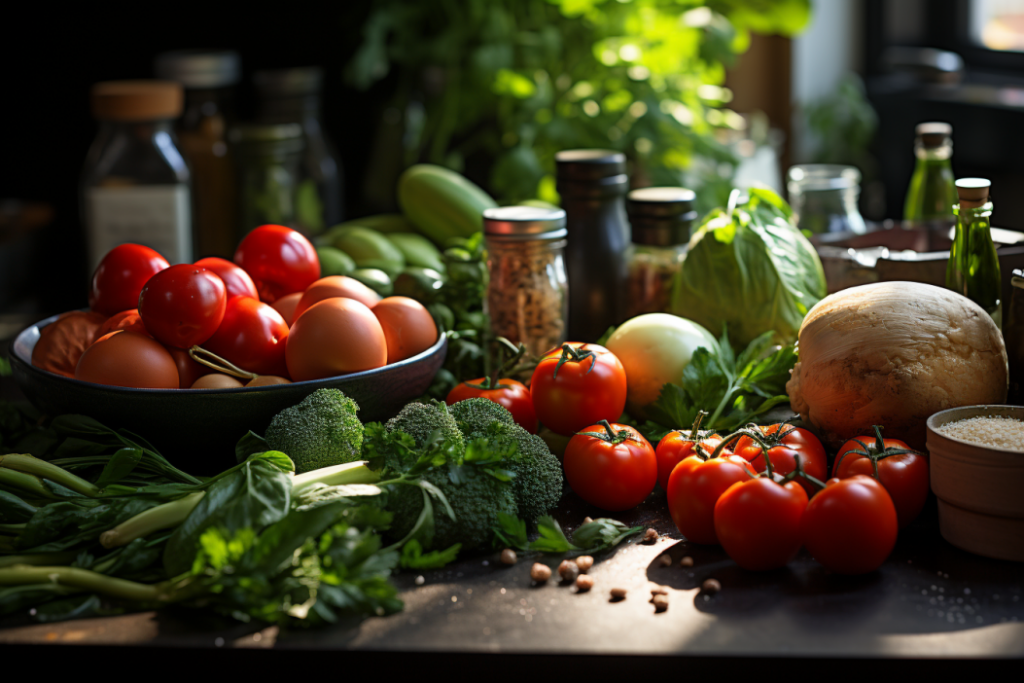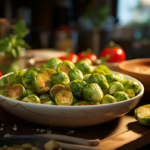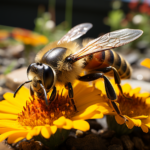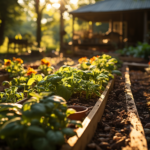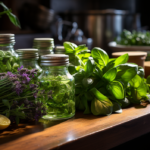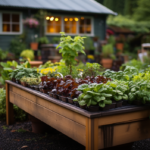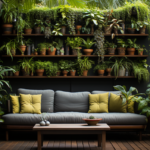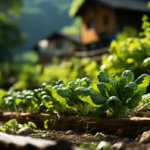Table of Contents
Discover the Top Picks for Small-Space Container Gardening and Enjoy Fresh Veggies All Summer!
Want to grow fresh vegetables but don’t have a yard or garden? No worries! You can still enjoy delicious, home-grown produce even if you live in an apartment or have limited outdoor space. Container gardening is a great option for urban and small-space dwellers, and vegetables can be grown successfully in pots, planters, and even hanging baskets. In this article, we’ll explore the best vegetables to grow in containers for small spaces. We’ll provide tips and tricks for container gardening, showcase some great veggies that thrive in pots, and explain why container gardening can be a fun and rewarding project for anyone who loves fresh food and the great outdoors.
– Why choose container gardening?
Why choose container gardening?
Container gardening has become increasingly popular in recent years, and for good reason! Whether you’re limited on outdoor space, want to grow organic produce, or simply enjoy the process of watching plants grow, there are many benefits to container gardening.
Space-saving solution
One of the main advantages of container gardening is that it utilizes vertical space. Rather than planting in a traditional garden bed, you can stack containers, use hanging baskets, or place pots on shelves, making the most of your limited outdoor area. If you live in an apartment or have a small balcony or patio, container gardening can allow you to grow fresh vegetables, fruits, and herbs without taking up too much room.
Control and flexibility
Container gardening also offers greater control over the growth environments of your plants. You can select the soil, water, and temperature conditions that are best suited for your chosen vegetables. This makes it easier to protect your crops from pests, and you can even move your pots to sunnier or shadier spots depending on the plant’s needs.
Health benefits
Besides the convenience and ease of growing your own vegetables, there are also numerous health benefits associated with container gardening. First, you’ll be able to harvest your produce when it’s fully ripe, meaning you’ll be consuming fruits and vegetables at their peak nutritional value. Moreover, because you’re growing your produce yourself, you can ensure that it’s free of harmful pesticides and chemicals. In addition, gardening can be a great physical activity and stress-reliever, leading to a healthier lifestyle overall.
In conclusion, container gardening is an ideal way for small-space dwellers to enjoy fresh vegetables while maximizing their usable outdoor area. With greater control over growing conditions and the chance to enjoy the health benefits of gardening, container gardening is an excellent choice for anyone looking for a fun and sustainable hobby.
– Tips for successful container gardening
Tips for successful container gardening
Growing plants in containers can be a fun and rewarding way to enjoy fresh vegetables even if you don’t have a backyard or garden. Here are some tips to help ensure your container gardening is a success:
Choose the right container
The container you choose can make all the difference in how well your plants grow. Choose a container that is deep enough for your plants’ root systems and wide enough to accommodate their full-grown size. Make sure your containers have drainage holes to allow excess water to escape.
Use good quality soil
The soil you use in your container is also important for plant success. Choose a potting mix that is well-draining and nutrient-rich. Avoid using garden soil which can become compacted and hinder plant growth.
Provide adequate water and sunlight
Water is essential for plant growth, and container gardens often require more frequent watering than traditional gardens. Make sure your containers are located where they’ll receive adequate sunlight for your chosen plants and keep the soil moist.
Fertilize regularly
In containers, plants have a limited amount of soil and nutrients. Fertilize your plants regularly with a balanced fertilizer to ensure they have the necessary nutrients for healthy growth.
Choose the right plants
Some vegetables are better suited for container gardening than others. Choose plants that are compact, such as cherry tomatoes, carrots, lettuce, and herbs. Avoid plants that require a lot of space like squash, watermelon, and corn.
In summary, container gardening is a great option for small-space and urban dwellers who want to enjoy the benefits of fresh vegetables. By choosing the right container, soil, plants, and providing adequate water, sunlight, and nutrient-rich soil, you can enjoy a bountiful container garden on your patio, balcony, or even indoors. With these tips, you can ensure your container garden thrives all season long!
– Top 10 vegetables for container gardening
Top 10 Vegetables for Container Gardening
Container gardening provides a great option for small-space and urban gardeners who want to grow their vegetables. You can use varieties of pots, planters, or hanging baskets to grow different types of vegetables in your balcony, rooftop, or small yard.
If you’re new to container gardening, the following are the top 10 veggies that are easy to grow and suitable for containers.
1. Cherry tomatoes
These are simple to grow and have a high yield, producing small and juicy tomatoes. Make sure to use a larger container and cage it as it grows taller.
2. Green Beans
Green beans can grow prolifically in containers and are perfect for smaller spaces or preparing a meal for one.
3. Carrots
Carrots aren’t difficult to grow, but they need a slightly deeper container. These root veggies do well in grow bags, which allows the carrots to develop better and avoid overcrowding.
4. Radishes
Radishes are one of the fastest-growing veggies and perfect for container gardening. You can quickly harvest them in 20-30 days after seeding.
5. Spinach
This nutritious leafy vegetable grows well in pots or boxes. It needs partial shade and regular watering to keep the soil moist.
6. Lettuce
Lettuce is among the most comfortable veggies to grow and ideal for containers. They are also pricey in grocery stores, so growing them can save you a lot of money.
7. Peppers
Peppers, both sweet and hot, are excellent options for growing in containers. They require plenty of sunlight, water, and pruning to grow well.
8. Eggplant
Eggplants grow well in containers but require warm temperatures and ample sun. Choose a large pot, give them plenty of support, and be careful not to overwater them.
9. Cucumbers
Cucumbers require a larger container and support to climb up while growing. For optimal growth, make sure they get plenty of sunlight and water.
10. Zucchini
Zucchinis grow best in larger containers with loose soil that drains well. Provide them with plenty of water, sun, and support to grow well.
Overall, growing vegetables in containers can be a fun and rewarding activity. It’s essential to choose the right method to plant, keep the soil moist regularly, moderate the intake of fertilizers, and also use the suitable container size for your intended plant. With a little patience, dedication, and know-how, you can enjoy fresh veggies all season right from your balcony or porch.
– How to care for container-grown veggies
How to Care for Container-Grown Veggies
So you’ve selected the perfect vegetables to grow in your containers, they are thriving now, but how do you keep them that way until harvest time?
Here are some tips on how to care for your container-grown veggies:
Watering
One of the most critical aspects of container gardening is watering. Plants grown in containers dry out much faster than those grown in the ground, so it’s essential to keep the soil moist but not waterlogged. Here are some watering tips:
- Water regularly. Most container plants need to be watered every day, and some even twice a day, depending on the weather conditions.
- Water deeply. It’s better to water deeply once a day rather than giving plants a light sprinkling several times a day.
- Check soil moisture. Stick your finger into the soil; if it feels dry an inch deep, it’s time to water.
- Avoid over-watering. Over-watering is just as harmful as under-watering, causing a lack of oxygen to the roots, which can lead to root rot.
Fertilizing
Container-grown plants require fertilizer to keep them healthy and productive. Use a good quality liquid or granular fertilizer for veggies, and apply once a month. Here are some tips to follow:
- Follow product instructions. Over-fertilizing can lead to burned roots or stems, so it’s essential to follow the recommended rate on the product label.
- Use compost. Incorporating composted material into your soil before planting can provide a steady supply of nutrients throughout the growing season.
Pruning
Pruning your container plants can keep them healthy, productive, and looking good. Here are some tips to follow:
- Pinch off dead flowers and leaves. Removing the dead or damaged parts of plants encourages new growth and helps prevent disease.
- Trim back overcrowded plants. If plants start to get too big, you can trim them back to keep them in check and branching out properly.
Protecting
Plants grown in containers are more susceptible to pests and diseases than those planted in the ground. Here are some ways to keep your plants safe:
- Use organic pest control. There are many organic methods to keep pests at bay, such as companion planting or using neem oil or insecticidal soaps.
- Monitor diseases. Keep an eye on your plants for signs of diseases and remove any infected plant tissue as soon as possible.
By following these tips, you’ll keep your container veggies healthy, and they’ll reward you with a bountiful harvest.
Conclusion
Container gardening is a fantastic way to grow your own fresh veggies, even if you don’t have much space. By following a few simple tips and choosing the right plants, you can create a thriving container garden that provides delicious produce all summer long. From cherry tomatoes to lettuce, peppers to cucumbers, there are plenty of veggies that are perfectly suited to container gardening. With a little care and attention, your container garden will reward you with tasty, nutritious food that you can enjoy at home. So, if you’re looking to add a touch of green to your balcony or backyard, give container gardening a try – you might be surprised at how easy and rewarding it can be!

